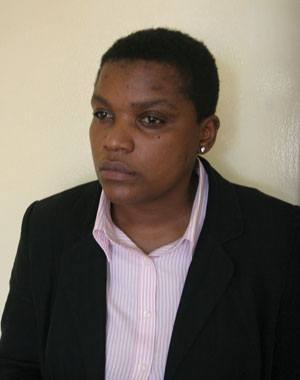
There is general consensus in Zimbabwe that climate change and global warming are major concerns for the country, and civil society is not taking the phenomenon lightly.
Environment with Chipo Musara
Although just a few years ago, randomly asking people on Zimbabwe’s streets what climate change was all about would have invited all kinds of odd answers, today the country’s generality are now aware of its intricacies.
The generally improved knowledge on climate change must also have a lot to do with the extensive awareness campaigns that the country, through different organisations and medium, has embarked on.
Many are convinced that climate change has already reared its ugly head, with the sudden changes in weather conditions that have seen a single season experiencing acute variables in weather patterns serving for many as proof.
The persistent droughts and the unpredictable rainfall patterns that often culminate in floods have also proved worrying and there is general agreement that this is just but the beginning.
When I attended a Civil Society Organisation Climate Change Working Group (CCWG) meeting hosted by Oxfam GB in Harare last week, I have to say I was quite taken aback by the level at which CSOs, in some instances working with the Ministry of Environment, have risen to the occasion.
Even those organisations, whose operations had traditionally had nothing to do with environmental issues, have come up with climate change adaptation strategies.
- Village Rhapsody: Put women at the centre of climate justice
- Village Rhapsody: Climate change: a threat to food security and rural development in Zimbabwe
- Village Rhapsody: Put women at the centre of climate justice
- Binga sand beach: Much ado about nothing
Keep Reading
They believe climate change is a problem that is affecting everyone in the country, at varying degrees, and they could not help being part of the solution.
Women and child welfare organisation have joined the cause, as they believe it is women and children who bear the brunt of climate change more than men since they tend to be more vulnerable in disaster situations.
Community-based adaptation (CBA), a concept that, according to Regional Environment Organisation (Zero), targets those communities in the developed world that are most vulnerable to climate change, is gaining popularity.
Marginalised communities and poor people, who constitute the majority of people in the country, have been observed to be more vulnerable to climate change.
Almost as if to outdo each other, organisations that each presented their community initiatives were confident their climate change adaptation measure would be the ultimate answer.
Oxfam GB, an international NGO with a presence in more than 90 countries, is more concerned with the adverse effects climatic change and the resultant unpredictable weather patterns have had on the country’s smallholder farmers, the majority of whom depend on their farming ventures for survival.
Farmers face the brunt of climate change
The changes in seasons have ushered in longer winters, shorter rainy seasons with rainfall patterns very erratic and extreme weather conditions that have seen one day being unbearably hot and the next very cold.
These changes have particularly been bad for the farmers.
In a bid to build resilience of the smallholder farmers, Oxfam GB has a programme running from October 2012 to March 2015 in Gutu, Zvishavane and Chirumanzu districts, under which farmers will be trained on different ways to adapt to climate change.
The organisation is also in the process of setting up weather stations to support 15 wards.
Weather forecasts reaching the farmers too late, if at all, have hampered farmers’ ability to plan their activities. Farmers require specific information on when it will rain and how much rainfall they will receive.
The weather stations are expected to help fill the current information gaps.
Save the Children, an independent children welfare organisation, has a programme that aims at teaching children about climate change, through such activities as dramas, plays and cartoons.
They believe adaption measures should be mindful of children’s needs and there is need for them to learn about the risk of floods, fires, extreme heat and how to deal with them to protect themselves.
Action 24, a non-profit organisation, has programmes that are focused on responding to severe shocks brought about by climate change. The organisation has identified the youth as a major part of the climate change war.
For feedback, email: [email protected]











